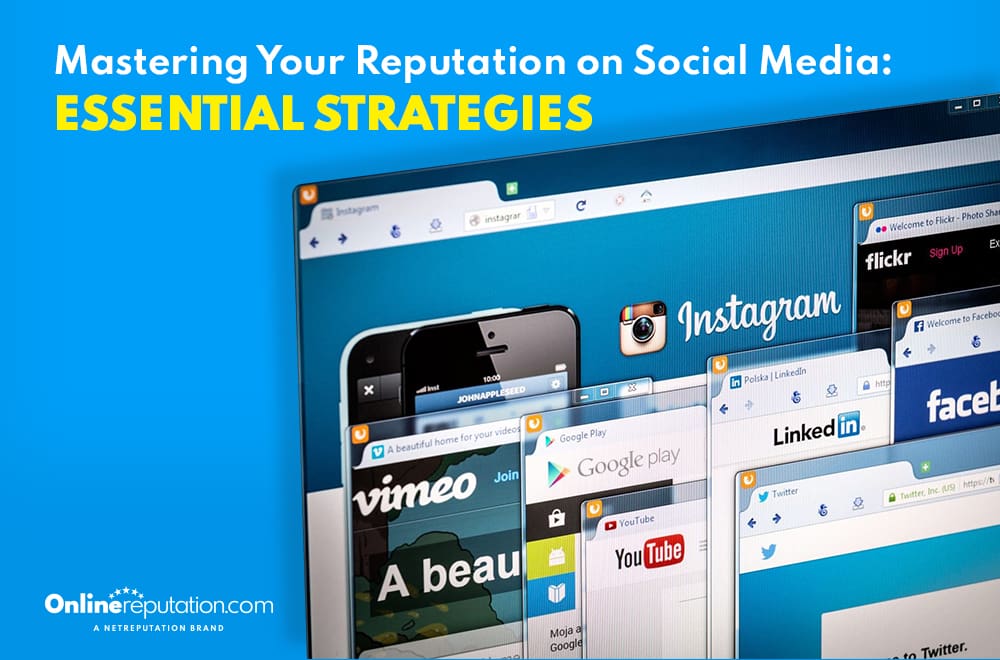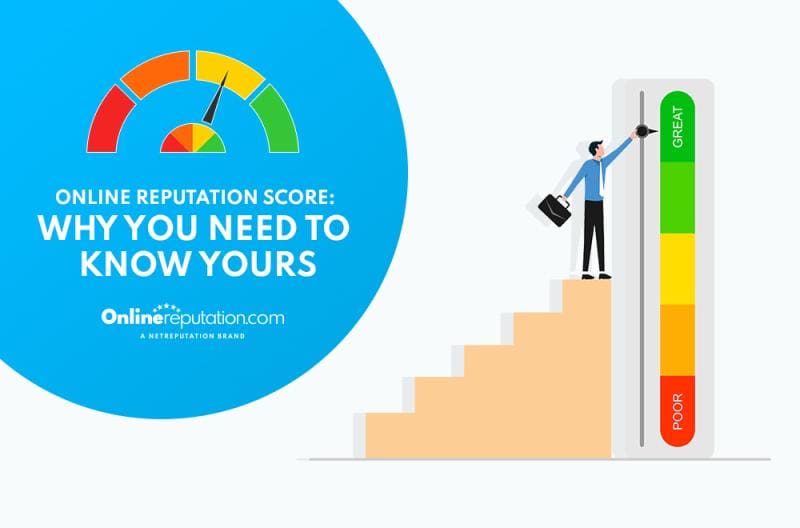
Managing your reputation on social media is crucial for any brand. This article will explore effective strategies for monitoring your online presence, engaging with your audience, and turning feedback into opportunities.
Understanding Social Media Reputation Management
Social media reputation management involves actively managing how a brand is perceived online to build trust and visibility. This process includes ongoing monitoring, engagement, and a proactive approach to feedback and mentions.
At its core, it’s about listening to your audience, learning from their feedback, and responding in ways that foster trust and loyalty. Social media platforms provide a unique opportunity to engage with customers in real time, making it a crucial aspect of brand reputation management.
A social media crisis management plan is essential to overall reputation management strategies. It involves monitoring social media channels, responding to customer feedback, and proactively addressing negative situations to maintain a positive online presence.
Effective social media reputation management increases awareness of customer concerns and fosters trust and loyalty. Key activities include regularly posting content, monitoring social media channels for mentions, and engaging with consumers. Focusing on these areas helps brands manage their online reputation and maintain a positive image.
Defining Social Media Reputation Management
Social media reputation management is the process of monitoring and managing a brand’s public image across social media platforms. This involves using tools to track keywords and manage interactions across various social media accounts, allowing brands to stay on top of what is being said about them.
Regularly posting relevant and positive content helps engage the audience effectively and maintain a positive online reputation. Additionally, feedback from negative reviews can provide valuable insights to improve customer experiences.
Why Social Media Reputation Matters
A positive online reputation is crucial as it attracts customers, builds trust, and enhances brand value. Social media is critical for building direct communication between brands and their audience, allowing for sharing experiences. Online reviews play a significant role in shaping consumer perceptions and purchasing decisions, with platforms like Google and Facebook hosting most of these reviews.
A strong online reputation can significantly influence a brand’s ability to attract and retain customers, ultimately impacting sales. Moreover, maintaining a positive reputation can differentiate a brand from its competitors, making it easier to attract new customers and create a lasting positive impression.
Building a Robust Social Media Reputation Strategy
Building a strong social media reputation strategy starts with thoroughly examining your online presence using data from various sources. Social media analytics tools are essential for understanding your audience and your reputation. With this insight, you can create a content plan that keeps your audience engaged and fosters a positive brand image.
Maintaining and regularly updating social media pages is crucial to ensure audience engagement.
Social listening tools are also important. They allow you to monitor conversations about your brand and gain insights to refine your strategy. Organizing your posts with a content calendar and maintaining transparency and authenticity in your messaging is key to building trust. Tools like Hootsuite and Brandwatch help monitor brand mentions and public opinion, providing the data needed to adjust your approach. This structured, proactive approach ensures your social media presence remains strong and positive.
Engaging with Your Audience
Engaging with your audience is crucial for managing your social media reputation, and social media engagement plays a key role in bridging the gap between customer service and social media interactions. Responding quickly to comments and mentions shows you’re attentive and can significantly boost your online image. Encouraging user-generated content enhances credibility and builds genuine connections with your audience.
Promoting such content fosters trust and authentic endorsements for your brand. Clear protocols for handling negative feedback ensure you address issues swiftly and professionally, turning potentially dissatisfied customers into loyal supporters. Highlighting positive reviews can increase your visibility and attract new customers, strengthening your brand’s reputation. Together, these steps create a strong strategy for engaging with your audience on social media.
Leveraging Technology for Reputation Management
Leveraging technology is essential for effective social media reputation management. Tools like Hootsuite let brands manage all social media messages in one place, streamlining communication and making monitoring mentions and responding promptly easier. Social listening tools help find, analyze, and reply to relevant mentions, giving a full view of customer sentiment.
These technologies offer valuable insights into customer feedback, helping to refine engagement strategies. AI-driven sentiment analysis can quickly sift through large volumes of social media data, providing actionable insights into customer feelings. Automated monitoring tools provide real-time alerts for social media mentions, enabling quick responses to customer feedback.
Platforms like Brand24 help track online conversations and sentiment, enhancing social media reputation management. Together, these technologies create a strong strategy for managing social media reputation.
Proactive Measures for Maintaining a Positive Reputation
Maintaining a positive social media reputation requires a proactive approach that aligns with your business goals and builds trust with your audience. Regularly creating and sharing engaging content, interacting with your followers, and consistently posting are key to fostering a strong online presence.
Having up-to-date crisis plans to handle potential issues quickly and effectively. Consistent brand messaging, supported by tools like Sprinklr and a clear social media style guide, ensures your voice stays unified across all platforms. Encouraging user-generated content can boost credibility and deepen customer loyalty. Finally, regularly monitoring your social media presence helps you avoid problems, ensuring your brand remains positive.
Keeping your social media reputation in good shape is about being proactive and showing your audience that you care. Share interesting content regularly, chat with your followers, and keep a steady posting schedule. Have a solid crisis plan ready for any issues. Use tools like Sprinklr and a clear style guide to keep your brand’s voice consistent. Encourage your customers to create content about your brand to make them feel valued. Keep an eye on your social media to quickly catch and fix any problems, ensuring your brand stays positive.
Monitoring and Analyzing Social Media Data
Monitoring and analyzing social media data is vital for managing your brand’s reputation. Using social listening tools helps you identify trends and understand how customers feel about your brand in real-time, allowing you to stay ahead. Effective management attracts new customers and keeps existing ones happy by promptly addressing their needs and concerns. By paying attention to specific terms in customer conversations, you can spot strengths and areas needing improvement.
Tools like Talkwalker measure engagement, reach, and sentiment, offering insights to refine your strategies. Sprinklr provides a comprehensive view for managing incidents in real-time, helping you tackle negative feedback swiftly. Regular monitoring and analysis enable informed decisions to boost engagement and reputation. Setting up alerts for mentions and tracking key metrics ensures you stay responsive to your audience’s sentiments. Regularly reviewing analytics reports helps you adjust strategies and improve outcomes, ensuring you stay connected with your audience and maintain a positive reputation.
Summary
In summary, mastering your reputation on social media involves understanding the importance of social media reputation management, building a robust strategy, engaging with your audience, leveraging technology, taking proactive measures, and continuously monitoring and analyzing data.
These essential strategies can build trust, improve audience engagement, and maintain a positive online reputation. Remember, your social media presence is a powerful tool for connecting with your audience and shaping your brand’s reputation. Stay proactive, stay engaged, and let your brand shine.
You might also like
What Is Reputation Marketing? A Practical Guide to Boost Your Brand
Managing your reputation on social media is crucial for any brand. This article will explore effective strategies for monitoring your …
